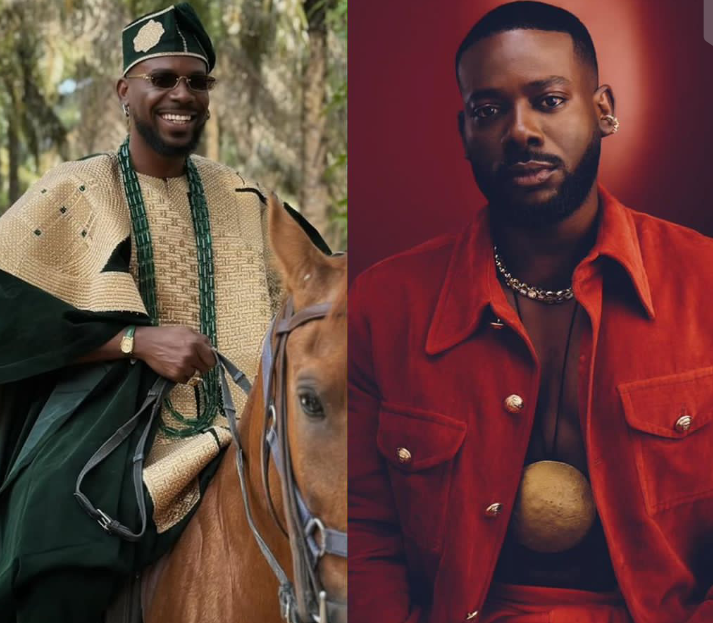
DNA Shock: Young Man Heartbroken After Discovering He Is Not His Father’s Biological Son

In a story that has sent shockwaves across social media and left many reflecting on the complexities of family, identity, and betrayal, a young man has opened up about the emotional devastation he suffered after discovering that the man he had called father for 19 years was not his biological dad. The revelation, which came through a DNA test, has left him traumatized and struggling to move on from the emotional scars.
The young man, identified on X (formerly Twitter) as Nizzy cool with the handle @Ememobong99, shared the painful experience in a series of heart-wrenching posts. According to him, he grew up believing that the man who raised him was his biological father. His mother, who passed away when he was just 13, had never told him otherwise. For years, he lived under the assumption that he belonged, that his identity was intact, and that his place in the world was secured by blood and lineage. That belief came crashing down when his supposed father conducted a DNA test following constant disputes over what he described as his “stubborn behavior.”
“After 19 years my dad realised I wasn’t his son after conducting a DNA test because of my stubborn behaviour and my mom died when I was 13. Omor till now I never fit move on from the trauma. 19 years of spending my whole life thinking my dad was my dad. Jesus Christ!! E no go better for my mama for that g wey she dey so,” Nizzy wrote, pouring out raw emotions that drew immediate reactions from thousands of Nigerians.
The post quickly gained traction, not just for its shocking revelation but for the brutal honesty with which the young man expressed his pain. Many empathized, sending words of encouragement, while others debated the morality of DNA testing in families and the impact of such revelations on children who have grown up with love, care, and the belief in family bonds.
One of the reactions that caught attention came from a user identified as Akram (@AbuOkaa), who tried to console him by reminding him that fatherhood is not defined solely by blood ties. “He will forever be your dad so long he paid your mom's bride price. Before Western civilization came to our shores, our ancestors had their own unique ways of doing everything. Shake it off, brah. Na man you be,” Akram wrote, pointing to the traditional African notion that family is not always biological but deeply rooted in cultural obligations and communal responsibility.
But Nizzy was quick to correct that assumption, revealing that his case was far more complicated than Akram had painted it. According to him, his supposed father never paid his mother’s bride price because there was never a marriage in the first place. Instead, his mother conceived him after what he described as a “one night stand,” and the man had never been in a relationship with her. “Na unwanted pregnancy o. Baba no pay for nothing. Na one night stand based on the story wey them tell me. After giving birth to me they were never together again,” Nizzy revealed, making it clear that the man who raised him had done so without any formal union or cultural obligations binding him to the role of fatherhood.
This detail sparked even more outrage online as many began questioning the choices of his late mother. Some criticized her for not being upfront about the circumstances of his birth, while others argued that she had probably acted out of desperation to give her son a stable home and identity. Whatever the case, her silence left Nizzy with a lifetime of confusion and heartbreak, and her death meant he never got the chance to ask her the questions that now torment him daily.
The emotional weight of his story lies not only in the betrayal he feels but also in the sense of displacement it has created in his life. For 19 years, he believed he was a son, cherished or at least connected by blood to the man who raised him. Now, he grapples with the harsh reality that everything he thought he knew about himself was based on a lie. His anger toward his late mother reflects a common theme among children who discover such hidden truths: a sense of being robbed of their right to know their origins. His words, “E no go better for my mama for that g wey she dey so,” captured the bitterness of a son who feels that the one person who should have been honest with him withheld the most important truth of his existence.
Across the country, the story has sparked wider conversations about paternity fraud, DNA testing, and the moral responsibility parents have to their children. With DNA tests becoming more accessible in Nigeria, more men are demanding proof of paternity, and cases like this have been making headlines in recent years. Social media has amplified these stories, turning private family disputes into national conversations about trust, fidelity, and the crumbling of traditional family values under the weight of modern realities.
Many commentators have urged Nizzy to seek therapy to help him process the trauma. They warn that without healing, the anger and bitterness could shape his relationships and personal life in ways that mirror the same dysfunction he is now condemning. Others have encouraged him to embrace the man who raised him, regardless of the DNA results, arguing that fatherhood is proven through care, sacrifice, and presence, not merely blood.
Yet the complexity of Nizzy’s situation makes this advice difficult to embrace. Unlike many cases where a father unknowingly raises another man’s child within the context of marriage, his case is rooted in a one-night encounter that led to an unwanted pregnancy, leaving him with no formal claim to either parent’s intentional love. His mother is gone, and his father figure feels betrayed, leaving him suspended in a painful limbo where the foundation of his identity feels shattered.
As his story continues to circulate, it serves as a mirror reflecting the harsh realities many young people face when secrets about their birth are revealed later in life. It raises critical questions: Should mothers always tell their children the truth about their paternity, no matter how painful? Should fathers demand DNA tests before investing years of their lives raising children? And most importantly, how do children like Nizzy rebuild their lives when the ground beneath their feet has been pulled away by a truth they never asked for?
For Nizzy, the journey to healing will likely be long and complicated. His posts show a young man caught between anger and grief, haunted by a mother’s silence and a father’s rejection, and struggling to redefine who he is outside the shadow of a DNA test. His story is a reminder that behind every statistic on paternity fraud and every viral DNA revelation is a human being carrying scars that may never fully heal.
In the end, Nizzy’s story is not just about a DNA test gone wrong. It is about identity, betrayal, and the lifelong consequences of secrets. It is a painful testament to the power of truth withheld, and a call to society to reckon with the human cost of deception in families.


